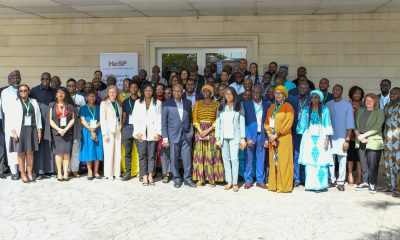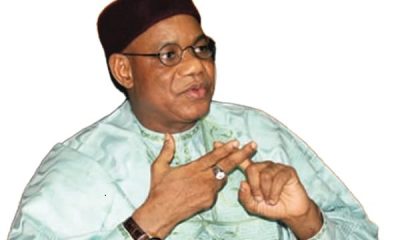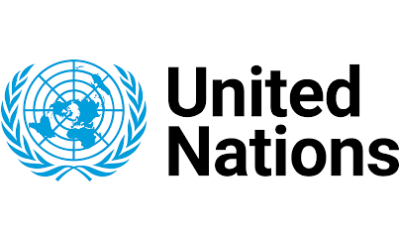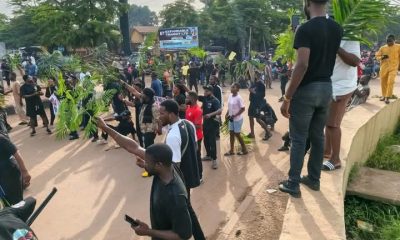COVER
FG Targets N24.5trn into Federation Account in 2024

By Tony Obiechina, Abuja
Federal Government’s revenue accruals to Federation Account is projected to rise to N24.54 trillion in 2024 from N11.86 trillion estimated in 2023, as revenue from the main pool is projected to be N20.70 trillion while Value Added Tax (VAT) pool and Electronic Money Transfer Levy (EMTL) are projected at N3.
66 trillion, and N174. 26 billion respectively.This was even as the Federation Account Allocation Committee (FAAC) shared a whopping N903.480 billion to the three tiers (FG, States and LGAs) for the month of Sept.
Director General of Budget Office of the Federation, Mr. Ben Akabueze who disclosed this on the sidelines of the 29th Nigerian Economic Summit in Abuja; gave a breakdown into the 2024-2026 Medium Term Framework and Fiscal Strategy document (MTEF).
Akabueze said the draft 2024-2026 paper was prepared against the backdrop of democratic transition to reflect current realities and new direction of President Bola Tinubu’s administration in addressing key policy and fiscal challenges.
The document showed key parameters to drive the medium-term revenue and expenditure framework for Nigeria in 2014 include: Oil benchmark:2024- $73.96; 2025- $73.76; 2026- $69.90. Oil Production (Mbps): 1.78; 1.80; 1.81. Exchange rate N/$: 700/$; 665.61/$; 669.79/$. Inflation: 21.40 per cent 20.30 percent; 18.60
Other parameters are: Non-oil GDP: Non-Oil GDP (N’bn): N223,989.2; N249,188.0; N278,251.7. Oil GDP (N’bn): 2024-N12,316.0; 2025- N13,225.7; 2026-N14,272.0. Nominal GDP (N’bn): N236,305.2; N262,413.7; N292,523.7. GDP Growth Rate (%): 3.76; 4.22; 4.78. Imports: 32,453.5; 33,401.3; 34,515.4 and Nominal Consumption (N’bn): N163,227.8; N189,992.8; N218,594.2
The projected exchange rates for the Nigerian Naira (N) against the U.S. Dollar ($) are 700 Naira to 1 Dollar in 2024, 665.61 Naira to 1 Dollar in 2025, and 669.79 Naira to 1 Dollar in 2026. These rates reflect the assumed values used for currency conversion in economic calculations.
The oil benchmark reflects the expected price of oil in the years 2024, 2025, and 2026, which increases slightly in 2025 before decreasing in 2026. Oil production is expected to increase slightly over the three-year period.
The exchange rate is expected to fluctuate, decreasing significantly in 2025 before increasing slightly in 2026 while inflation is expected to decrease over the three-year period.
Non-oil GDP is expected to increase steadily, while oil GDP is expected to increase slightly. Nominal GDP which represents the estimated total value of goods and services consumed in the Nigerian economy is expected to increase steadily, with a growth rate of around 4% each year.
Imports which are the estimated total value of goods and services imported into Nigeria are expected to increase over the three-year period, while nominal consumption which represents the estimated total value of goods and services consumed in the Nigerian economy is expected to increase steadily.
These figures indicate that Nigeria’s economy is expected to maintain steady growth over the next few years, with some fluctuations in key parameters such as the exchange rate and oil benchmark. However, there may be continued challenges with inflation and a heavy reliance on oil as a primary source of revenue.
“Accordingly, economic growth is projected to increase to 3.76 per cent, 4.22per cent and 4.78 per centin 2024, 2025 and 2026, respectively, mainly due to strong political will to take tough decisions and implement necessary reforms”, it stated.
The document added that “most of the growth in real GDP during the period will be driven by the anticipated increase in domestic oil refining capacity, telecommunications, crop production, slight growth in investment and employment, with the bulk of projected growth coming from the non-oil sector”
It noted that “the Renewed Hope Agenda (RHA) of the Tinubu Administration has significantly higher growth targets than the National Development Plan (NDP) 2021-25. The NDP is therefore undergoing a review to align its growth aspirations with the RHA”.
Consumption in nominal terms is projected to increase to N163.23 trillion in 2024 and N218.59 trillion in 2026 substantially due to expected increase in wages and cash transfers to households to mitigate the negative impact on their real income of petrol subsidy removal.
Import of goods is projected to increase to N32.45 trillion in 2024 and gradually to N34.51 billion in 2026 due mainly to the effects of depreciation of the domestic currency and imported inflation.
“Inflationary pressure is projected to continue at 21.4% in 2024. A slight reduction in inflation pressure is anticipated from 2025 and 2026 due to the lag effect of tight monetary policy on demand for goods and services, expected lower deficit financing and reduction in supply-side constraints occasioned by a drastic reduction in domestic insecurity, improved infrastructure, and generally better operating environment for businesses’”
The Federation Account Allocation Committee (FAAC) which shared N903.480 billion to the Federal Government, States and Local Government Areas (LGAs) for the month of Sept was chaired by the Minister of Finance and Coordinating minister of the Economy, Mr. Wale Edun on Tuesday at the Ministry of Finance in Abuja.
From the stated amount inclusive of Gross Statutory Revenue, Value Added Tax (VAT), Electronic Money Transfer Levy (EMTL) and Exchange Difference, the Federal Government received N320.543 billion, the States got N287.071 billion while the Local Government Councils collected N210.900 billion.
The Oil Producing States received N84.966 billion as Derivation being the 13% of Mineral Revenue allocated every month.
Also, the sum of N54.426 billion was given as cost of collection, N347,857 billion allocated to Transfers and Refunds, while the sum of N289.000 billion was transferred to Non-Oil Revenue (Savings) for the month of September 2023.
According to the communique, the Gross Revenue available from the Value Added Tax (VAT) for September 2023, was N303.550 billion, which was a decrease from the N345.727 billion distributed in the preceding month, resulting in a decrease of N42.177 billion.
From that amount, the sum of N12.142 billion was allocated for Costs of Collection and the sum of N8.742 billion given for Transfers and Refunds. The remaining sum of N282.666 billion was distributed to the three tiers of government of which the Federal Government got N42.400 billion, the States received N141.333 billion, Local Government Councils got N98.933 billion.
Accordingly, the Gross Statutory Revenue of N1014.953 billion received for the month was higher than the sum of N891.934 billion received in the previous month of August, 2023 by N123.019 billion. From that amount, the sum of N41.826 billion was allocated to Costs of Collection, a total sum of N339.115 billion for Transfers and Refunds and the sum of N211.000 was transferred to Non-Oil Revenue (Savings).
The remaining balance of N423.012 billion was distributed as follows to the three tiers of government: Federal Government was allocated the sum of N190.849 billion, States got N96.801 billion, LGCs got N74.629 billion, and Oil Derivation (13% Mineral Revenue) got N60.733 billion.
Also, the sum of N11.447 billion from Electronic Money Transfer Levy (EMTL) was distributed to the three (3) tiers of government as follows: The Federal Government received N1.648 billion, States got N5.495 billion, Local Government Councils received N3.846 billion and N0.458 billion was allocated to Costs of Collection.
The Communique disclosed that N264.813 billion from Exchange Difference, which was shared as follows: FG received N85.647 billion, the States got N43.442 billion, the sum of N33.491 billion allocated to the LGCs, and N24.233 billion given to Derivation (13% of Mineral Revenue) while the sum of N78.000 billion was transferred to Non-Oil Revenue (Savings).
Petroleum Profit Tax (PPT) and Oil and Gas Royalties increased considerably, while Value Added Tax (VAT), Import and Excise Duties, Electronic Money Transfer Levy (EMTL), Companies Income Tax (CIT) and Custom External Tariff (CET) levies recorded significant decreases.
According to the FAAC, the total revenue distributable for the current month of September 2023, was drawn from Statutory Revenue of N423.012 billion, Value Added Tax (VAT) of N282.666 billion, N10.989 billion from Electronic Money Transfer Levy (EMTL) and N186.813 billion from Exchange Difference, bringing the total distributable amount for the month to N903.480 billion.
The balance in the Excess Crude Account (ECA) as at October 24, 2023 stands at $473,754.57.ade
COVER
CAC Reviews Service Fees for Efficient Services Aug. 1
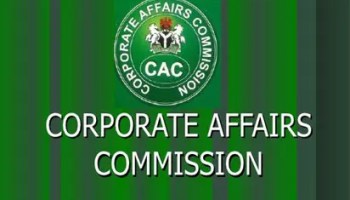
The Corporate Affairs Commission (CAC)has said it has reviewed some of its service fees to enhance service quality, improve efficiency, and sustain digital transformation in its operations.The commission said this in a public notice it issued in Abuja yesterday.It said the increment which will take effect from Aug.
1, reflected prevailing economic realities and rising operational costs. It said the adjustment followed engagements with key stakeholders. The commission added that the review was to sustain prompt and technology-driven service delivery for Nigerians.“The review of fees is crucial to ensuring that the commission continues to provide prompt, efficient, and technology-driven services that meet the expectations of its stakeholders for the benefit of the Nigerian economy,” it said.The CAC described the reviewed fees as modest and competitive.It said the changes would support its ongoing reforms to enhance transparency, accountability, and customer satisfaction.“The schedule of the revised fees has been published on the commission’s official website: www.cac.gov.ng, including a direct link to its resource section for easy access,” the notice said.The commission assured the public of its continued commitment to delivering high-quality services and maintaining the integrity of Nigeria’s corporate registry.It urged the public, business owners, and corporate stakeholders to visit its website for full details of the reviewed service charges and other resources. (NAN)COVER
Tinubu Woos Global Investment Community to Bridge $2.3trn Infrastructure Gap
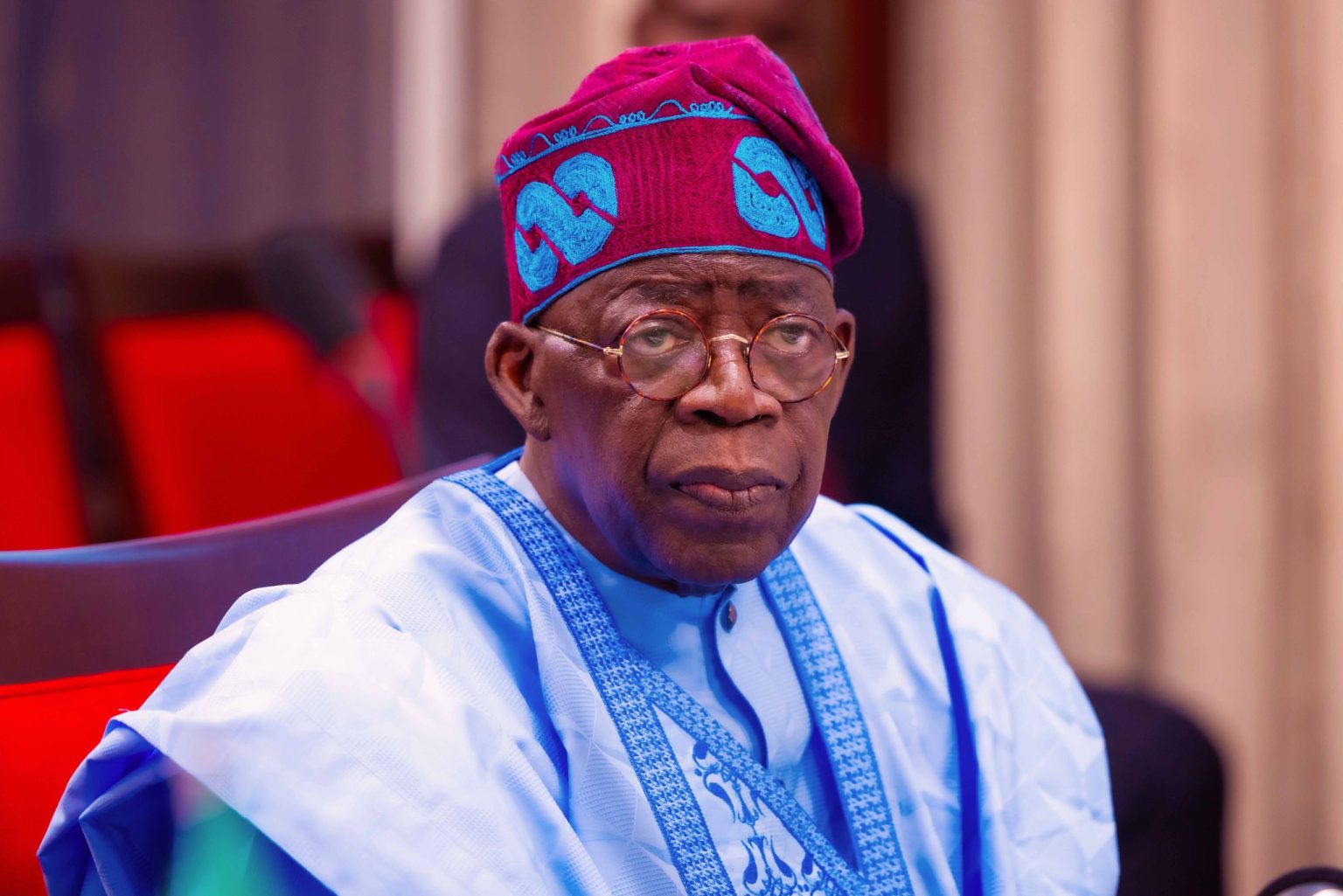
By James Samuel, Abuja
President Bola Tinubu has reaffirmed the determination of his administration to close the nation’s $2.3 trillion gap through public-private partnership (PPP), while also urging the global investment community that Nigeria is ready and open for business.
He said his administration would fast-track approvals for viable infrastructure projects in the country, saying what matters to the average Nigerian is the availability of basic infrastructure such as power, roads, health facilities and quality schools. Tinubu spoke on Tuesday while declaring open the Nigeria 2025 Public-Private Partnership (PPP)Summit at the Old Banquet Hall, Presidential Villa, Abuja.The summit, organised by the Infrastructure Concession Regulatory Commission (ICRC), brought together key stakeholders across government and private sectors to advance collaboration towards closing Nigeria’s $2.3 trillion infrastructure gap.Tinubu, who was represented by the Vice President, Senator Kashim Shettima, said Nigeria could no longer build a 21st-century economy on 20th-century infrastructure, noting that the era of government-only funding of capital projects was unsustainable.He said, “We are not seeking investors to carry burdens; we are opening opportunities to create value,” the vice president stated. “We want long-term partners ready to bridge our infrastructure gap with purpose, precision, and integrity.”He noted that the administration, which is over two years old, has taken bold steps to reform the economy, including the removal of fuel subsidy, liberalisation of the foreign exchange market, and optimisation of government revenue, all geared towards creating a more viable investment climate.“We have strengthened the ICRC, streamlined bureaucratic bottlenecks, and aligned our infrastructure processes with global best practices,” he said. “But policies alone don’t generate megawatts or build roads; what we need is collective action.”The President said the administration’s goal, guided by the National Integrated Infrastructure Master Plan (2020–2043), is to grow Nigeria’s infrastructure stock from 30–35 percent of GDP to at least 70 percent by 2043.He emphasised the country’s market potential, citing Nigeria’s population of over 230 million people and its projected rise to 440 million by 2050, making it the third most populous nation on earth. “One out of every four Black people is a Nigerian. There is no African market like this,” Shettima said. “But beyond investment, we need innovation, efficiency, and integrity.”He called on the global investment community not to be deterred by perceived risks but to recognise the immense opportunities to build sustainable projects that deliver real impact, from roads and power to clean water, quality education and healthcare.“Let this summit not be remembered for kind speeches—we’ve had those for decades—but for bankable projects, signed deals, and enduring progress,” he said.Reaffirming the administration’s commitment to swift implementation, Tinubu pledged that viable projects would be fast-tracked and that coordination across ministries and agencies would be ensured.He said, “Nigeria has turned the corner. We have crossed the Rubicon. We are on a path to sustained peace and development. We are ready, and we are open for business.”Earlier in his welcome address, Director General of the ICRC, Jobson Ewalefoh restated the federal government’s resolve to close Nigeria’s infrastructure gap, estimated at over $2.3 trillion, through strategic Public-Private Partnerships (PPPs).Speaking at the summit themed ‘Unlocking Nigeria’s Potential: The Role of PPPs in Delivering the Renewed Hope Agenda’, the ICRC boss described the event as a platform for national transformation.Ewalefoh applauded President Bola Tinubu for repositioning infrastructure as a key driver of inclusive growth and for promoting PPPs as a governance model rooted in innovation, efficiency, and accountability.Highlighting projects like the Highway Development and Management Initiative, the Egini Medical Infrastructure Scheme, and the Dasin Hausa Dam, the DG said Nigeria is laying the groundwork for sustainable, private-sector-led development.He assured investors of Nigeria’s openness to business, adding that the ICRC is committed to ensuring that all PPP projects are legally compliant, economically viable, and socially impactful.The DG also noted presidential reforms mandating full MDA compliance with PPP guidelines, commending Vice President Shettima and key development partners, including AfDB, NESG, Afreximbank, IFC, and Africa50.The summit continues with technical sessions on de-risking, project financing, and institutional alignment.COVER
End Herdsmen Invasions and Genocide in Benue Now!
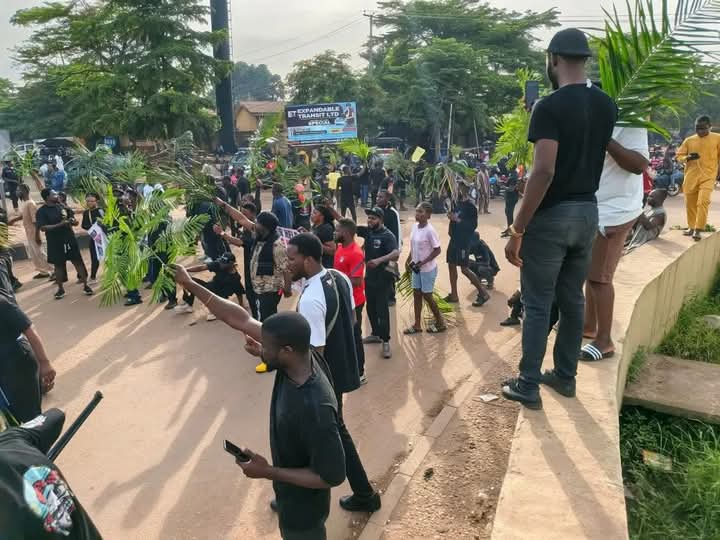
The unending killings in Benue state – North-central Nigeria – climaxed to an extremely disgusting level last week, when at least 200 Benue indigenes were rounded up in their sleep and massacred in a three-hour killing spree by terrorists parading themselves as herdsmen. The tragic killings stunned the Nigerian nation as the chilling death toll remains the single-worst atrocity in a region which has witnessed an upsurge in attacks amid increasing signs that a concerted militant assault is underway to force entire communities to abandon their own region into the wilderness of despair.
Before the wanton killings, Church leaders in Benue had sought help to relocate huge numbers of internally displaced persons (IDPs) who had for years taken refuge in Yelewata and its environs following frequent ferocious attacks by terrorists on communities across the state.The victims had no choice other than to flee from their ancestral lands to neighbouring towns and villages for safety. This has been the experience of the innocent victims across the length and breadth of the state for more than a decade now. It is curious that despite all the steps taken by the federal and sub-national governments to address the ugly security situation, there has been no headway. The situation has become a shameful embarrassment to the federal government, which has all along been paying lip service to the precarious security situation in the state, totally oblivious that the primary responsibility of government is essentially the provision of security and welfare to the citizenry.A troubled Governor of Benue state, Rev. Fr. Dr. Hyacinth Alia, while reacting to the Yelewata massacre, condemned the tragic blood-letting of his people and called for calm.”My beloved people of Benue state, I address you this morning with a heart weighed down by grief, but strengthened by duty. Last night, terror descended on Yelewata, in Guma Local Government Area, where over two hundred of our brothers and sisters were brutally murdered by terrorists masquerading as herders. Entire families were wiped out. Children, women and elders, slaughtered and burnt in the shelter of their homes.”Two days ago, two communities – Mtswenem and Akondotyough Bawa in Makurdi LGA were attacked and 25 people killed. This is evil in its purest form — and I condemn it with every fiber of my being.”Let this be clear: this was not an isolated incident. Our people have endured too many massacres — in Ukum, Logo, Katsina-Ala, Kwande, Agatu, Otukpo, Apa, Gwer West, Gwer East, and elsewhere. These killings are not just numbers. These are our people — people with names, dreams, and families. This government will no longer speak in cautious tones or diplomatic restraint”, he stated, pointing out that “to every grieving family, I say: I see you. I feel your pain. And I will not let this pass as just another tragedy.”This morning, I have formally reached out to request an immediate one-on-one audience with His Excellency, President Bola Ahmed Tinubu. I intend to meet with him personally — not just to convey our sorrow, but to demand clear and decisive federal action. Benue has carried this burden for far too long”The governor directed the State Emergency Management Agency (SEMA) to coordinate the temporary relocation and settlement of the displaced persons at the Makurdi International Market premises and provide for their basic needs. All relevant government agencies should be on standby to support SEMA whenever they are called upon. To forge a new path going forward.The governor summoned an emergency high-level meeting to hold in Makurdi.Those invited include: the Secretary to the Government of the Federation, all serving Members of the National Assembly from Benue State, leaders of the State House of Assembly, Local Government Chairmen, traditional rulers, religious leaders, and security chiefs resident in the state will also be in attendance.Governor Alia maintained:”We are not APC or PDP. We are not Tiv, Idoma, Igede, Etulo, Abakpa, Jukun, Akweya, Nyifon or Igbo. We are Benue people under attack, and we must respond as one big family.”We will no longer wait to be killed before reacting. We will take the war to the doorsteps of those who bring war to us. With the support of the President and Commander in Chief of the Armed Forces of the Federal Republic of Nigeria, Bola Ahmed Tinubu, GCFR, we will resume full implementation of the Anti-Open Grazing and Ranches Establishment Law. All herders with animals grazing freely on any inch of Benue land are hereby advised to comply or face the consequences.”I have directed immediate reinforcement of security in our border communities. Tactical units from the military and police are being deployed. The Benue State Government is also working to strengthen joint operations and support local intelligence networks. But beyond force, we are building unity. The call now is for community vigilance, intelligence sharing, and neighborly solidarity. Our enemies thrive when we are divided. They fall when we stand together”Alia thanked the youths for raising their voice against oppression. I have seen your handwriting and videos on social media.”I have not been asleep, but I am reinvigorated by your admonitions. Continue to be alert, not lawless. Be courageous, but coordinated. Do not take laws into your hands, but never again let our communities be taken by surprise.To every citizen: mourn, but also rise. Cry, but never give-up. We shall overcome”, he stated, reiterating that his message was not of fear, but of defiance.Speaking at Yelewata, the epicenter of the massacre, less than 12 hours after the atrocity, the town’s parish priest, Father Ukuma Jonathan Angbianbee, described how he and other IDPs narrowly escaped death, dropping to the floor of the church’s presbytery at the sound of gunfire. He said: “When we heard the shots and saw the militants, we committed our lives to God. This morning, I thank God I am alive.”The daily massacre in Benue in the past one year, coupled with the current killings is being falsely described in some quarters as reprisals killings. This is a gross misrepresentation and a great fallacy because from whichever angle one looks at the wanton and deliberate blood-letting, one sees that it is an obvious misnomer that has been happening in the state to the chagrin of a traumatized people. And this is nothing but genocide and ethnic cleansing orchestrated by the invading Fulani herdsmen-backed militia.The Yelewata killings, which began on the night of Friday, June 13, 2025, saw dare-devil heavily armed herdsmen targeting displaced families and setting fire on their buildings, while they were asleep, and macheted and shot to death those who attempted to escape from the blaze. Eye witnesses said the IDPs escaped their camps and moved into the market square in Yelewata, Guma Local Government Area, near Makurdi, when the terrorists stormed the place shouting “Allahu Akhbar” (“God is great”), before engaging in their killing spree.In a first-hand report given to Catholic charity Aid to the Church in Need (ACN), local clergy said that earlier the same evening, police had repelled the attackers as they tried to storm Yelewata’s St Joseph’s Church, where up to 700 IDPs lay sleeping.The priest said Yelewata had absorbed thousands of IDPs from neighbouring villages – as it was considered relatively safe, lying on the main road to Abuja – but now was largely deserted, with many taking refuge in nearby Daudu and Abagena.Father Jonathan further revealed that he and his colleagues identified the attackers as herdsmen and that the attack was carefully coordinated, as the militants accessed the town from multiple angles and used the cover of heavy rains to mount their assault.He said: “There is no question about who carried out the attack. They were definitely herdsmen shouting ‘Alahu Akhbar’ during the onslaught.
The Reverend and other Clergy in Makurdi Catholic Diocese criticized the security response to the attack, saying that the police, who stopped the militants from accessing the church, were poorly equipped and were unable to prevent the attack on the nearby market place.Pope Leo XIV did not hesitate to react to the gory killings, saying he was praying for those “brutally killed” in the terrible massacre – most of them IDPs “sheltered by the local Catholic mission”.The Pope said he was praying for “security, justice and peace” in Nigeria, adding that in his thoughts especially were the “rural Christian communities of the Benue State who have been innocent victims of violence.”The senseless attack comes amid a spike in attacks on Benue state around the Makurdi region, which has about 80 percent Catholics.Church leaders have repeatedly called for international help, saying that a jihad militant plan is underway to seize land and ethnically cleanse the region of its Christian presence.On his part, former Senate President, Senator David Mark, strongly condemned the recent wave of violent attacks on several communities in Benue state by suspected armed herdsmen, which have resulted in huge loss of lives and the destruction of property worth billions of naira. Senator Mark in a statement said in the past few weeks, the affected areas include Otukpo, Agatu, Apa, Ohimini, Okpokwu, Ado, Ogbadibo, Gwer-West, Gwer-East, Katsina-Ala, Logo, and Ukum local government areas. He expressed deep concern over the killings and kidnappings, especially the most recent ones in the Otukpo axis and Gwer-West, where youth protests erupted in response to the killings.He further appealed to the youths across Benue communities to remain vigilant and promptly report any suspicious movement or individuals to security operatives, emphasizing that prevention is key to avoiding further tragedies.Senator Mark also issued a strong warning against the stereotyping of any ethnic group, stressing that reprisal attacks were not the solution and could further escalate tensions in the region.“There should be no stereotyping of any ethnic group or reprisal attacks on any group of people due to these unfortunate incidents,” he cautioned.While commiserating with families affected by the attacks, he prayed for the repose of the souls lost. “I commiserate with those who lost their loved ones to the marauders. May their souls rest in peace,” Senator Mark summed up.DAILY ASSET has followed closely and reported previous incidents of herdsmen attacks on communities in the North Central and especially Benue state and our documentation points to a direction of a carefully planned action by persons or groups whose interests to displace local communities and take over land is no longer in doubt. These killings have been made possible with the sophistication of the weapons carried by the attackers.The country must not be oblivious of the fact that a major security threat confronting Nigeria is the proliferation of small arms and light weapons and it’s attendant consequences – deteriorating security challenges in all nooks and cranny of the country.
Thus, the daily loss of human lives and property at the sub-national level as it is the current case in Benue state is due to the menace of small arms and light weapons flooding the country. It is regrettable that over a long period of time, the Ministry of Defence and the intelligence community have failed to devise a strategy to control the illegal flow of these arms into the country, a situation which has reduced Nigeria’s war against insurgency, banditry and criminality to a child’s play. For the campaign against insecurity to succeed, the federal government must map out strategies to curtail the proliferation of small arms and light weapons bedeviling the country. This must move beyond rhetorics.Given the gargantuan nature of the crisis, the Nigerian state has been used as a microcosm to examine the emerging and changing trend of small arms and light weapons proliferation on the African continent.A study, facilitated by the United Nations (UN) programme of action on small arms and light weapons pointed out that the technology, particularly internet, could become a game changer and redefine the nomenclature of small arms and light weapons proliferation but the inability of the security operatives to effectively infiltrate such internet spaces to keep abreast and track criminal activities remains a serious setback.The study pointed that the calamities associated with small arms and light weapon proliferation in the 21st century are serious challenges confronting countries in Africa with Nigeria occupying terrifying and frightening position. This drawback grossly affects the nation’s political, economic, and socio-cultural development. And it is profoundly expedient for a robust intelligence gathering mechanism through effective policing across the length and breadth of the country to counter the yoke of small arms and light weapons proliferation.Again, the unending stockpiling of illicit weapons continues to threaten not only the country, but global peace and security. This is exacerbating the plight of civilians in strife-torn countries worldwide. The misuse, illicit transfer and destabilizing accumulation of small arms and light weapons and ammunition, remain a defining factor in undermining peace and security at the national, regional and global levels, a disturbing development which has deeply aggravated situations for vulnerable populations already suffering from conflicts.Despite the pledge by President Ahmed Tinubu to curtail the menace of insecurity, many Nigerians are still being needlessly cut down by the crossfire of armed robbers, kidnappers, criminals and insurgents, who perpetuate their nefarious activities due to unending proliferation of small arms and light weapons. As terrorists and organized criminal groups continue to inflict harm and chaos because of the country’s weak institutions, there is a compelling need to retool and strengthen the nation’s intelligence gathering institutions to mop up illicit small arms and light weapons in the country. DAILY ASSET so submits.On the killings in Benue, the constant refrain from Abuja, which urges Benue people to either “reconcile” or “learn to live with their neighbours”( the attackers) is a painful display of ignorance at its worst level. The attackers usually advance from their hideouts and camps in neighbouring states especially Nasarawa, where they come to cause mayhem. Their one precondition to peace appears to be control of the ancestral lands of the local farmers for grazing of their cattle. Since there could hardly be any compromise on this, violent confrontation becomes inevitable.We condemn in the strongest possible terms the repeated wanton killings by the suspected Herdsman and their militia. The bloodletting cannot go on without end. And this is the time.We urge the Federal government to abandon rhetoric and and truly mobilize the federal forces to quell this revolt, which has all the potentials to further destabilise the country if not nibbed in the bud.In order to detect and prevent the movement of illicit small arms and light weapons across state borders effectively, states must develop and implement comprehensive border security management strategies and engage all relevant national agencies to strengthen, sustain and consolidate the campaign against insecurity and illicit trafficking of small arms and light weapons in the country,
In doing this, the birth of state police which has been delayed for a long time can no longer wait. The National Assembly must pass the necessary laws for state police to emerge. The absence of state police coupled with the failure of the Nigeria Police Force to handle the crisis has made many to canvass the arming of local vigilante and youth groups to confront the herdsmen. This seems quite attractive in the circumstance but will surely be counterproductive in the long run as there could be no guarantee to what the young people with guns in their hands could do in a nation where the population is ravaged by hunger and poverty.The Federal Government should as a matter of urgency and necessity establish military bases around the areas mostly ravaged by the herdsmen attacks in Guma, Makurdi, Gwer-West, Logo, Agatu, Apa, Logo and Katsina-Ala LGAs.The Benue state government should also commence immediate implementation of the Anti-open grazing Law, which has the potential to restrain the herders from coming into collusion course with the framers. If there are conflicting or ambiguous clauses in the Law, it should be immediately strengthened for implementationTo demonstrate that the blood-thirsty herdsmen have no federal backing as some have insinuated, the Police must arrest and fish out the perpetrators of this heinous crime and bring them to justice.In the interim, a comprehensive relief package should immediately be made available to the IDPs in the affected areas by the federal government.DAILY ASSET commiserates with all those who have lost their loved ones in the series of attacks as well as their means of livelihoods. We urge the federal government to support the vulnerable IDPs to regain their battered economic lives and restore the damaged social infrastructure like schools, churches, markets, hospitals, etc. The federal government should lead in the reconstruction effort.Finally, we warn that for too long we have played too much politics with the lives of innocent Nigerians. We have been lucky with this misnomer but nobody knows what tomorrow holds if we continue in this direction. There is therefore no more room for procrastination. There must be an immediate end to the regime of herdsmen attacks on farming communities in Benue and other states with the accompanying needless bloodletting. DAILY ASSET has warned!

